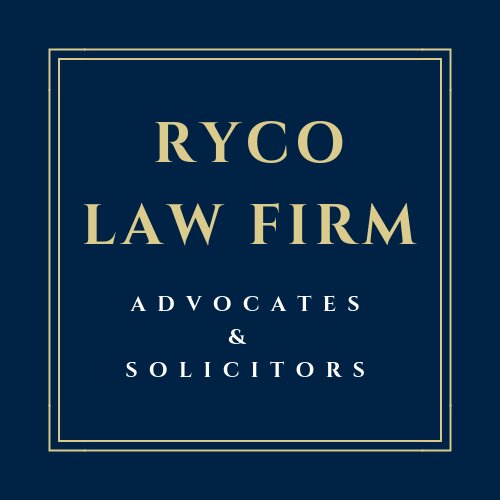Best Foreclosure Lawyers in Kota Kinabalu
Share your needs with us, get contacted by law firms.
Free. Takes 2 min.
Free Guide to Hiring a Real Estate Lawyer
List of the best lawyers in Kota Kinabalu, Malaysia
About Foreclosure Law in Kota Kinabalu, Malaysia
Foreclosure in Kota Kinabalu, Malaysia, involves the legal process through which lenders can repossess a property when the borrower fails to meet their mortgage obligations. This process typically begins with the lender issuing a notice of default, followed by legal proceedings to reclaim the property if the borrower cannot rectify the situation. In Malaysia, foreclosure laws are governed by the National Land Code 1965 and other related local regulations. These frameworks are designed to protect both lenders and borrowers, ensuring that due process is followed, and rights are preserved throughout the foreclosure process.
Why You May Need a Lawyer
Engaging a lawyer is crucial in foreclosure situations to navigate the legal complexities involved. Common reasons for seeking legal assistance include:
- Receiving a notice of default and needing clarification on rights and obligations.
- Negotiating with lenders to restructure or refinance the mortgage to avoid foreclosure.
- Challenging the foreclosure process due to procedural errors or unlawful practices by the lender.
- Understanding any relief options available under local or national policies.
- Representation in court proceedings to ensure fair treatment under the law.
Local Laws Overview
In Kota Kinabalu, foreclosure is primarily governed by the National Land Code 1965, which outlines the procedures and legal requirements for initiating foreclosure. Key aspects include:
- The necessity for lenders to provide adequate notice to borrowers before proceeding with legal action.
- The right of borrowers to rectify their default up to the point of property auction.
- Regulatory oversight to ensure that foreclosure sales are conducted fairly and transparently.
- The availability of judicial intervention, allowing courts to stay proceedings in cases where issues such as payment discrepancies or loan modifications are involved.
Frequently Asked Questions
What is foreclosure?
Foreclosure is a legal process where a lender seeks to recover the balance of a loan from a borrower who has stopped making payments by forcing the sale of the asset used as the collateral.
How long does the foreclosure process take in Kota Kinabalu?
The duration of a foreclosure can vary but typically takes several months from the issuance of a notice of default to the sale of the property, depending on court schedules and procedural compliance.
Can I stop a foreclosure once it has started?
Yes, borrowers can stop foreclosure by curing the default, applying for a loan modification, or seeking a temporary injunction from the court, in cases where the foreclosure process has procedural issues.
What should I do if I receive a foreclosure notice?
Upon receiving a notice, contact your lender immediately to discuss options. Consulting a lawyer to understand your rights and potential defenses is also advisable.
Are there alternatives to foreclosure?
Yes, alternatives include loan modification, refinancing, short sale, and a deed in lieu of foreclosure, where you voluntarily transfer ownership to the lender.
Can a lawyer negotiate with the bank on my behalf?
Yes, a lawyer can negotiate with the bank for more favorable terms, such as restructuring your debt or adjusting mortgage payments to avoid foreclosure.
Who conducts foreclosure sales in Malaysia?
Foreclosure sales in Malaysia are typically conducted by court-appointed auctioneers, ensuring that the process is transparent and follows legal protocols.
What happens if my house sells for less than the mortgage owed?
If the sale of the property does not cover the outstanding loan, you could be liable for the deficiency, which is the remaining balance owed to the lender.
Will foreclosure affect my credit rating?
Yes, foreclosure can significantly impact your credit score, making it more difficult to obtain loans or favorable interest rates in the future.
How can I find out about my rights during foreclosure?
Consulting with a legal professional or accessing government resources that detail homeowner rights under Malaysian law can provide clarity on your rights during foreclosure.
Additional Resources
For further assistance, consider reaching out to the following organizations:
- Sabah Law Association: Offers resources and guidance for legal issues related to property and foreclosure.
- National Housing Corporation of Malaysia: Provides information on housing rights and available support mechanisms.
- Local Legal Aid Centres: Offers consultations and may provide legal services to those who cannot afford a private lawyer.
Next Steps
If you find yourself in a foreclosure situation, consider taking the following steps:
- Contact your lender to discuss your situation and seek possible remedies.
- Consult with a qualified lawyer to explore your legal options and rights.
- Gather all pertinent documentation related to your mortgage and communications with your lender.
- Attend all legal proceedings and ensure you meet all deadlines to protect your interests.
- Stay informed about any legislative changes that could affect your case or provide additional relief options.
Lawzana helps you find the best lawyers and law firms in Kota Kinabalu through a curated and pre-screened list of qualified legal professionals. Our platform offers rankings and detailed profiles of attorneys and law firms, allowing you to compare based on practice areas, including Foreclosure, experience, and client feedback.
Each profile includes a description of the firm's areas of practice, client reviews, team members and partners, year of establishment, spoken languages, office locations, contact information, social media presence, and any published articles or resources. Most firms on our platform speak English and are experienced in both local and international legal matters.
Get a quote from top-rated law firms in Kota Kinabalu, Malaysia — quickly, securely, and without unnecessary hassle.
Disclaimer:
The information provided on this page is for general informational purposes only and does not constitute legal advice. While we strive to ensure the accuracy and relevance of the content, legal information may change over time, and interpretations of the law can vary. You should always consult with a qualified legal professional for advice specific to your situation.
We disclaim all liability for actions taken or not taken based on the content of this page. If you believe any information is incorrect or outdated, please contact us, and we will review and update it where appropriate.










